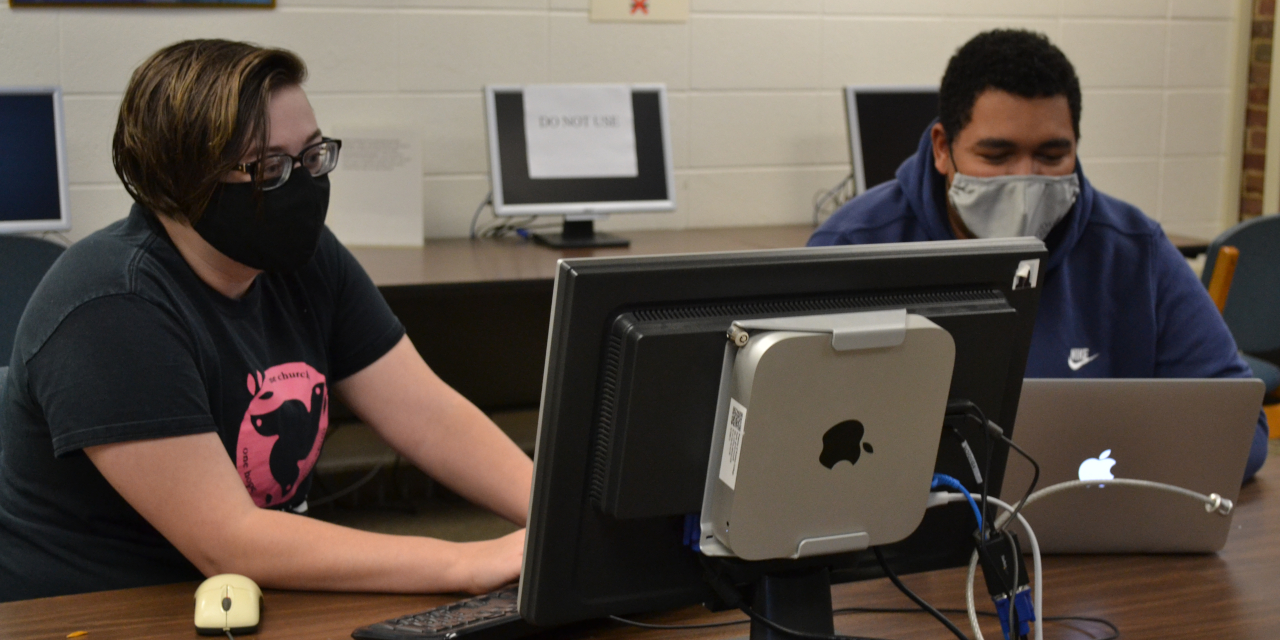When the Mennonite Church USA (MC USA) assembly meets in 2021, they will be presented with a call for legal reform, written by two Goshen College students.
The “For Justice In the U.S. Criminal Legal System” resolution calls for MC USA to commit to “reforms to the criminal legal system of the United States of America.”The resolution was written by Zack Begly, senior broadcasting and journalism double major, and edited by Elizabeth Reimer, junior peace, justice and conflict studies and Bible and religion double major.
The criminal system “causes pain and suffering,” the resolution states, “especially [among] poor people and people of color.”
The resolution explains the faults of the current system and offers guidance for MC USA to help combat the issues.
Various issues with the US criminal legal system are discussed, such as the origins of police in the South evolving from slave patrols and cash bail, which is too expensive for 90% of people and “raises the likelihood of being convicted,” if they are held before trial.
Reimer says the idea for the resolution came when she and Begly spoke at the biennial Mennonite convention in 2019.
“He mentioned once or twice the idea of writing a resolution at the time specifically about incarceration,” Reimer said. “And I thought that would be a really cool idea. I had just helped do some editing on the resolution that passed in 2019.”
The 2019 Migrant Children Resolution gave Reimer some background on incarceration.
Reimer has been interested in criminal justice and incarceration since high school and follows several activists online.
At the time, Reimer told Begly, “Well, if you do decide to do that, hit me up and I’m willing to help however you want,” she said.
And that’s how the year-long process of drafting the resolution began.
Begly later contacted Reimer, who took over the primary editing role.
“That was a lot of rewording things, saying ‘Do we have a source here?’” she said.
Reimer helped write the theological side, saying that she and Begly focused the resolution on “Why do we as Mennonites care? Instead of ‘Why do we care in general?’”
“Writing that involved a bit of research on my part on what different theologians are saying currently,” Reimer said. “I talked to a few different pastors who were helping read and [revise] the draft.”
Reimer reflected that the hardest part of the resolution was deciding what to keep and trim.
“There are so many issues in the criminal legal system, and going into this, Zack and I knew we wouldn’t be able to address all the issues,” she said. “So this resolution has expanded, contracted and expanded again.”
“That was a really hard process,” Reimer said, “[To say] it’s a serious issue, but we don’t have space for it.”
The resolution originally focused on incarceration, with no mention of the police. But after George Floyd’s death, “we had to shift, we couldn’t write this document about mass incarceration without talking about policing,” Begly said. “That was probably the biggest shift.”
The resolution calls for MC USA to commit to nine resolutions, which include having dialogue with former prisoners, advocating for better treatment of people at all levels of the American criminal legal system and abolishing private prisons.
Reimer said the minimum goal is for the resolution to “help draw attention to these issues,” and, ultimately, that it is passed by the MC USA delegate assembly.
“Even if it doesn’t pass, sending it out to congregations and having them take time to discuss issues in ways they normally wouldn’t, that’s gonna be real important,” Reimer said.
Begly hopes that the resolution becomes a resource for discussion.
“It’s become in and of itself a resource for basic education,” Begly explained. “I’m not saying it’s the be all and end all.”
A concern Reimer has stems from criticisms of MC USA’s resolutions, namely that they are seen as the solution to the problems, and nothing else is done.
“The resolution is a focal point of the issue,” Reimer said, “it’s not in and of itself gonna save us all. [The goal of the resolution] is for MC USA to help direct congregations, provide resources to engage in racial justice on the ground.”
Begly hopes to see churches participate in restorative justice.
“It’s pretty clear in the Bible that discrimination is wrong,” Begly said. “And I think the church needs to be at the forefront of something like that.”
“We hope that the resolution changes the way that we as Mennonites think about the American criminal legal system and making it a true justice system, not just a justice system in name alone,” Begly said.



